November 21, 2017
Dr. Thomas Cowan M.D., is, in my opinion, one of the most brilliant minds in modern holistic medicine – a gentleman who expertly blends both ancestral wisdom and modern science to provide meaningful changes in human health.
Of course, he's been a guest on the podcast before, and his episodes include…
…“Why Your Heart Is Not A Pump (& What Most Doctors Don’t Know About The True Cause Of Heart Disease).”, a must-listen episode that goes hand-in-hand with the article that you're about to read, and an episode in which we discuss the fact that our current understanding of heart disease – with its origins in the blood vessels – is completely wrong, and that heart disease is instead rooted in issues such as sympathetic nervous system overload, mineral deficiencies, and our unwillingness to treat the vessels in our body more like the roots and vessels in a plant…
…”How (& Why) To Eat More Vegetables, Why A Plant Is Like An Upside-Down Human, Little-Known Superfood Plants & More!“, in which you learn about a wide range of practical plant-eating information I've never seen published elsewhere, including little-known superfood plants, why humans are like an upside down plant, how to make extremely nutritionally dense vegetable powders and much more, including Dr. Cowan's 100 page book in which I folded over and highlighted nearly every page…
…and finally “The Shocking Story Of Vaccines, The Toxicity Of Ultrasounds, Why You Shouldn’t Play With Your Child & Much More With Dr. Thomas Cowan.“, in which we delve into shocking story of vaccines and specifically what happened regarding vaccinations in the last 100 years, the toxicity of prenatal ultrasounds, childhood play (including defending his controversial comment “don't play with your children”), and many other topics from the book he co-authored with Sally Fallon Morell entitled “The Nourishing Traditions Book of Baby & Child Care“.
But recently, I was attending the Wise Tradition Conference of the Weston A. Price Foundation, and learned from Dr. Cowan of a little-known seed extract that appears to act as an “insulin for the heart”, supporting activation of the “rest-and-digest” parasympathetic nervous system, improving microcirculation with shocking efficacy, and, most crucially as you will discover in this article, converting the lactic acid in the heart's myocardial tissue into pyruvate, which is the preferential fuel of the heart. This all translates to relief from issues such as angina, improvements in heart function and a potent treatment for many of the issues that cause or aggravate heart disease and heart attacks – even in seemingly healthy individuals (e.g. that marathoner or triathlete who drops dead of a heart attack during a race).
Dr. Cowan graciously offered to expound upon this seed extract in today's article, and so now I present to you, without further ado, the story of “The Insulin Of The Heart: A Little-Known Seed Extract That May Be The Future Panacea For Heart Disease.”
I am not a doctor and this is not to be taken, interpreted or construed as medical advice. Please talk with a licensed medical professional about this. These are just my own personal thoughts and not a prescription or a diagnosis or any form of healthcare whatsoever. If you contact Dr. Cowan's clinic with any questions, be sure to mention this article so he knows how you discovered this information.
Modern Heart Care Procedures: Doomed To Fail
In 2003 the Mayo Clinic published a major review article whose intention was to understand the risks and benefits of coronary artery bypass surgery. It came to the following conclusions:
- Bypass surgery can effectively relieve symptoms.
- Bypass surgery does not prevent further heart attacks
- Only high-risk patients benefit from bypass surgery with regard to better chances of survival.
In other words, having a bypass operation, along with all the troubles, side effects and expenses that go hand-in-hand with such a surgery, along with a bypass operations' attendant mortality risk is effective only at relieving symptoms in the vast majority of the patients who undergo this procedure. There is no evidence of prevention of future heart attacks (MI), nor of extending life, but a definite risk of death.
Similar results have been found for the more common procedure of stent placement. Instead of surgery to place new grafts in the heart, the blockages are instead mechanically opened, and stents are placed in the coronary arteries to keep the vessels open. Once again, while this procedure is effective for symptom relief, it does not reduce the likelihood of a future heart attack nor confer a longer life to the patient, despite being a wildly popular medical treatment.
One would think that cardiologists and internists armed with this information would doggedly pursue other avenues for treatment – avenues that would help prevent heart attacks and increase functional lifespan. However, sadly, even since the results mentioned above were published, the numbers of these procedures have increased rather than decreased, reaching a peak of 4.5 million worldwide in 2016.
I'd say something is seriously amiss in the halls of our modern cardiology wards. Would you agree?
The Truth About Heart Disease
One clue to understanding why bypass grafting and stent placement have not delivered on their promised results comes from the work of Italian pathologist Giorgio Baroldi. In his groundbreaking book “The Etiopathogenesis of Coronary Heart Disease: A Heretical Theory Based on Morphology“, Baroldi concluded that after doing autopsies for 40 years on patients who died of heart attacks, only 41 percent of these patients had a significant stenosis (plaque build-up) in the artery leading to the area of the heart affected by the heart attack.
What's more, 50 percent of these stenoses came after the heart attack occurred, not before, as one would commonly assume. These results suggest that approximately 80 percent of heart attacks have some other cause than simply a “blocked” or stenosed artery. Given this information, it is no wonder that, in the majority of cases, unblocking arteries — no matter how thoroughly or carefully done — will never be the solution for our nation’s epidemic of heart disease.
In my own book “Human Heart, Cosmic Heart: A Doctor's Quest to Understand, Treat, and Prevent Cardiovascular Disease“, I reviewed the existing literature on the controversy about the cause of heart attacks and I suggested three other causes of heart attacks. I assert that these possible causes must be addressed if we are to have a thorough approach to the prevention and treatment of angina, unstable angina and heart attacks. Briefly, these three other causes are:
1 – Autonomic Nervous System Imbalance. With the advent of heart-rate variability testing, which I consider to be a sensitive and accurate way to assess the autonomic nervous system activity, we now know that a large percentage of patients who go on to have a myocardial infarction (MI) have decreased parasympathetic activity in the days, weeks and months leading up to the MI. Baroldi suggests that the majority of MIs are caused by the combination of chronically low parasympathetic activity and a temporary stressful event, which furthers this imbalance. The important point here is that although they are similar, a decreased parasympathetic tone is not the same as excessive sympathetic activity. Decreased parasympathetic tone is a consequence of chronic stress, diabetes, hypertension, smoking and lack of physical activity. Increased sympathetic activity, which conventional cardiology focuses on with its use of beta-blockers, is more of a short-term imbalance and doesn’t have the same predictive value in determining whether an MI will occur. Cardiology is in need of a strategy that will support the patient’s parasympathetic nervous system, all while he or she implements long-term strategies to transform the causes of parasympathetic dysfunction.
2 – The Heart Is Not A Pump. Typical anatomical drawings of the heart suggest that all of the blood flow to the myocardium goes through the three major coronary arteries. Although these arteries are certainly important, it turns out that, even from a young age, the heart is endowed with a rich supply of blood vessels that make up the microcirculation of the heart. If you go to figure 1 in the FAQ section of the HeartAttackNew.com website, under the heading “The Riddle’s Solution,” you can see a perfectly illustrated depiction of the normal cardiac microcirculation. Again, as Baroldi points out, the normal heart is perfectly well suited to do its own bypass in the event of a chronic disruption of flow through one or more of the coronary arteries. This ability is why thousands, maybe millions, of Americans are walking around with arteries greater than 90 percent occluded, yet with no symptoms whatsoever. The body, using its robust capillary network, has done its own bypass, and the heart is protected. It is only in the case of chronic disease, in particular, diabetes, with its well-known microcirculatory pathology, that MIs start to show up. Clearly, stents and bypasses confer no benefit to those with microcirculatory disease. Modern cardiology is clearly aware of this issue, as this is the rationale for the use of Plavix and aspirin in cardiac patients. Both affect the microcirculation and increase blood flow therein. Both, of course, have their own toxicity, which limits their use and the ability of patients to tolerate these drugs.
3 – Metabolic Acidosis. This situation is perhaps the most important and most overlooked reason that people suffer from angina, unstable angina and MIs. The production and build-up of lactic acid in the myocardial tissues is the final common pathway in all cases of angina, unstable angina and MI. What happens is that, because of parasympathetic disease, coupled with micro-circulatory problems, the heart finds itself in a stressful situation, one in which it is forced to undergo what is called a glycolytic shift. This shift means that the heart is unable to generate energy in the usual manner, which is through mitochondrial-based respiration and instead begins to ferment sugars to obtain fuel. As Ben discusses in this podcast episode with Dr. Joseph Mercola, a similar shift is thought to underlie the cancer process and is becoming well known as an important etiology in chronic disease. Once this glycolytic shift happens, the cells start to build up lactic acid in the surrounding tissues. The same process happens in your leg muscles as the result of over-exercising. However, in contrast to leg muscles, the heart muscle can’t relax, so the lactic acid continues to build up. It is at this point that the familiar feeling of angina or chest pain begins to occur. As the process continues, the lactic acid continues to accumulate, which then causes a localized metabolic acidosis (lowered pH) to occur. The lowered pH prevents the influx of calcium into the myocardial cells, essentially preventing the contraction of the heart muscle fibers. This result can be seen in the stress echo or nuclear-perfusion tests used to diagnose heart disease in modern cardiology. As this issue progresses, and the lactic acid continues to accumulate, eventually there is a necrosis of the surrounding tissue, which is what we call a MI. Along with the destruction of the myocardial tissue, the dyskinetic or akinetic areas of the heart create shear pressure on the embedded arteries, which results in clots forming after the MI occurs. This sequence of events perfectly describes the events that occur as the MI is progressing. Modern cardiology has no tools in which to address this central pathology of the build-up of lactic acid in the myocardial cells.
Unfortunately, none of the true reasons for heart disease and heart attacks that I have outlined above can prove to be profitable for physicians and medical institutions, as the solution for each can literally involve solutions that are pennies on the dollar, and that Ben Greenfield and I thoroughly discuss in our podcast episode “Why Your Heart Is Not A Pump (& What Most Doctors Don’t Know About The True Cause Of Heart Disease).”.
But we only briefly addressed one particularly potent solution we discuss in that episode. And so, let us turn now to the insulin of the heart: strophanthus.
Strophanthus: The Insulin of the Heart
An effective treatment for angina, unstable angina and heart attack prevention must address each of the three areas described above to be truly successful. Luckily, such a medicine already exists and has been both widely used and sorely overlooked during the past century.
An African perennial vine called strophanthus makes seeds that contain the active ingredient referred to as g-strophanthin in Europe and ouabain in the US. Ouabain is a copy of a hormone made by our own adrenal cortex, and it has many functions that are useful in treating patients with heart disease. Used as the main treatment for the prevention of MIs in Germany for many decades, ouabain has been shown to support the parasympathetic nervous system, improve the micro-circulation and, crucially, convert the lactic acid in the myocardial tissue into pyruvate, which is the preferential fuel of the heart.
With the conversion of lactic acid into a nutrient for the heart cells, the cycle of pain and subsequent necrosis of the myocardial tissue is broken. In the majority of cases, the patients will experience relief from their angina as well as improvement in heart function.
During the past decade, I have treated heart patients with either g-strophanthin capsules or, more recently, an extract of the strophanthus seed extract with positive effects on their overall sense of well-being, and, specifically, on their heart function. Since my book was published, in which I first mentioned this “insulin of the heart”, we have, at my clinic, started a program to make strophanthus extract available to all heart patients who wish to use it – (note from Ben: I found that it can also be found as Strophanthus on Amazon, but cannot vouch for the quality).
At our clinic, we ask each patient to find a health-care practitioner who will order the medicine from us and supervise its use. By doing this, we hope to develop a network of practitioners who are well versed in the use of strophanthus. The results from practitioners are slowly beginning to come in, some of which are showing remarkable benefit. Below are some of those cases (either written by the practitioner or the patient him or herself).
If you are interested in learning more about the use of strophanthus for heart disease, please contact my office at (415) 334-1010 to schedule a free, 15-minute phone consultation on the use of strophanthus and how to order it. Mention Ben Greenfield or this article so I know how you discovered this information.
Strophanthus Case Studies
From a physician in Kentucky:
“Bruce, a 60-year-old male, suffers from atrial fibrillation and severe heart failure. Left ventricular hypertrophy and cardiomyopathy had developed from substantial untreated hypertension. His heart ejection fraction fell to <20%. His main measure of heart failure — BNP — rose to 3000. I had treated him with every supplement that I could contemplate, including ones that normally are very helpful for the heart from L-carnitine, 400mg ubiquinol, d-ribose, Cordyceps, Hawthorn, and other anabolic botanicals — literally 40 supplements due to his severe situation, along with natural blood thinners. Despite these he was on Lasix 40mg daily; an ARB produced a highly annoying persistent cough and had to be stopped.
With the aggressive supplementation, he did improve. However, BNP was still 1316, Bilirubin – 5.3, Alkaline Phosphatase 248, C-reactive protein 29, and d-dimer 2.8; these had all proven to be indicators of his heart failure in the previous two years. But he still was very limited as to physical activity.
Then I read Dr. Cowan's report about strophanthus. Out of desperation — all options had been exhausted — it was ordered. Over three weeks he titrated up to 10 drops twice a day. BNP dropped to 1244, CRP to 23.2, Bili to 3.5, Alk phase to 219, and d-dimer to 1.73. He was told to continue to titrate up on the strophanthus until reaching 15 drops twice a day.
We didn't hear from Bruce for many months afterward, but heard indirectly that he was doing better. When he did come in six months after the previous visit, he reported only minor physical limitations. His BNP had dropped to 492, CRP to 12.6, Bili to 1.9, Alk phase to 181 and d-dimer to 0.67. His blood pressure that typically was 100 diastolic, and as high as 178 systolic, was essentially normal for the first time at 132/80.
He reports no side effects from strophanthus (though he does note the taste and smell). After having blood drawn almost monthly for two years with constant adjustment in his regimen, and hobbled from physical activity, Bruce now has his life back with optimism about the future. Strophanthus has proved miraculous in Bruce's improvement at a time when he had nearly lost hope.”
From anonymous patient:
“My father had his first heart attack at age 45 and a second one at age 60 while undergoing bypass surgery. He died on the table. So, I have been careful to watch my diet and lifestyle.About a year ago, I began having left-sided chest and arm pain — only at night, in bed. A recent ECG had a “dip” that the doctor stated may be a sign of having had a heart attack at some point.I didn't want to overreact. I also didn't want to go down the same path as my father. I wasn't going to go “traditional” on this one!(My naturopathic doctor) suggested I start taking strophanthus drops twice a day. After two months of using it, my chest pain is completely gone! Additionally, I have a very strong sense of peace in my physical body. Not sure how to describe it.”
From anonymous patient:
“I suffered from cardiac cephalgia angina attacks —35 to 45 per month, even though I was taking 30 mg of Isosorbide Mononitrate daily, and using 0.4 mg nitroglycerin transdermal patches. After taking strophanthus seed extract, I’m down to around five angina attacks per month.”
From anonymous patient:
“I've been diagnosed with a-fib in November last year. After the diagnosis, the additional symptoms were tingling in hands and feet and chest pain and pressure on continuous basis. Everything else was healthy with my heart. Luckily Dr. Cowan is my doctor. He prescribed strophanthus with vitamin E and beet juice. This is the month of June. My a-fib symptoms are almost gone. Tingling is slowly going away, and chest pain and pressure are gradually vanishing.”
From anonymous patient:
“I had two CT chest scans. The one in October of 2016 had a calcium score of 40. I started the strophanthus in November 2016. The second CT scan in May 2017 had a calcium score of 12.”
From a Chinese-medicine physician in Colorado:
“On Feb 7, a 68-year-old male was hospitalized with heart failure due to left ventricle damage, rigidity. After stent installed, the ejection fraction was 18 percent. I started him six weeks ago on strophanthus 3 drops bid, and then three weeks later increased to 6, bid. (I also used ubiquinol, magnesium orotate, proteolytic enzymes, activated B vitamins). Checkup ECG yesterday, ejection fraction now at 47 percent. The technician commented that in 15 years he never saw this kind of recovery. The patient feels excellent and says, “I felt my heart moving differently” shortly after starting the strophanthus. I guess so!”
Summary
So there you have it. Since I met him two years ago, I have always looked to Dr. Cowan as a very intelligent, ethical and unbiased source of medical advice, and I'd highly recommend that if you or someone you know is struggling with heart disease or has a high risk of it, you reach out to Dr. Cowan about this unconventional healing modality.
I'd also highly recommend that you listen to the previous podcast episodes with him, as there as a host of other groundbreaking and little-known medical and health advice sprinkled throughout each show, and also in his books and on his website.
Do you have questions, thoughts or feedback for Dr. Cowan or me? Leave your comments below and one of us will reply! If you contact Dr. Cowan's clinic with any questions, be sure to mention this article so he knows how you discovered this information.


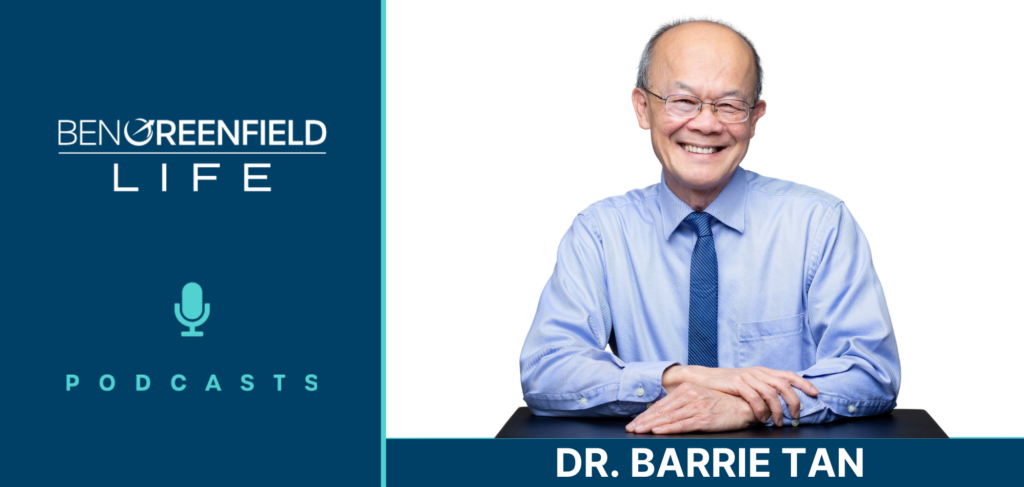

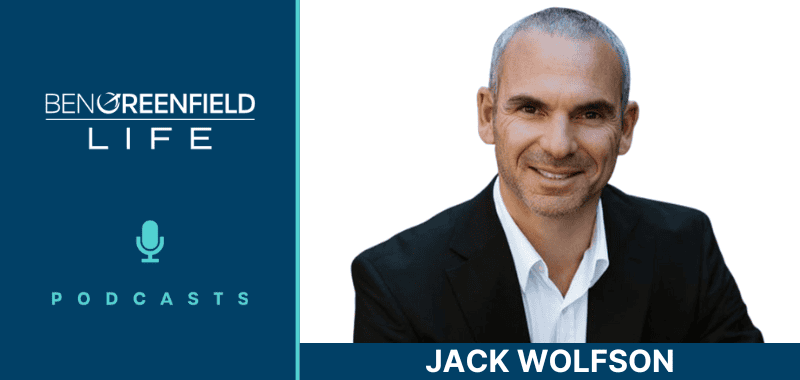

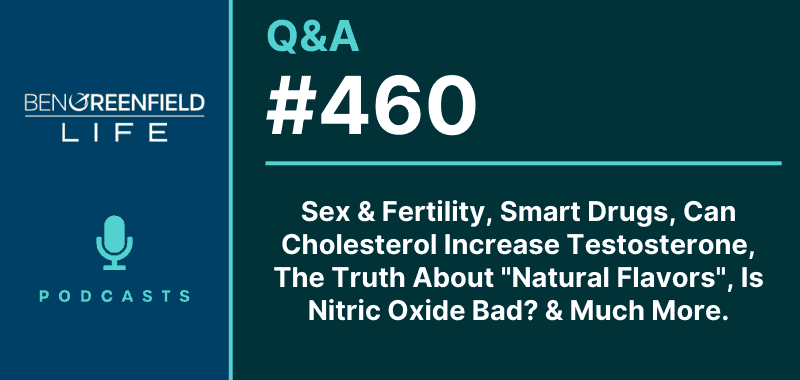




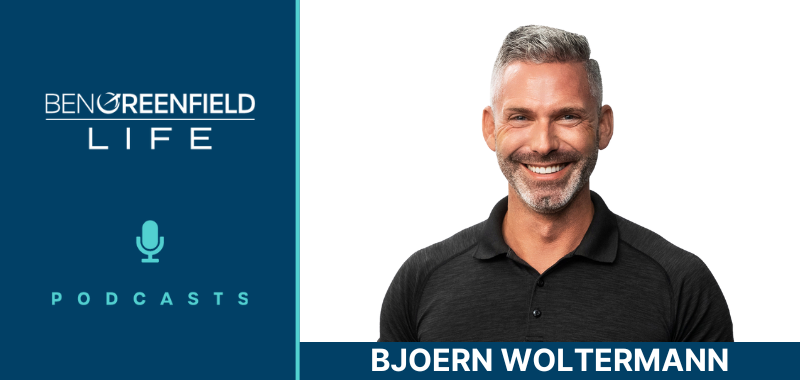
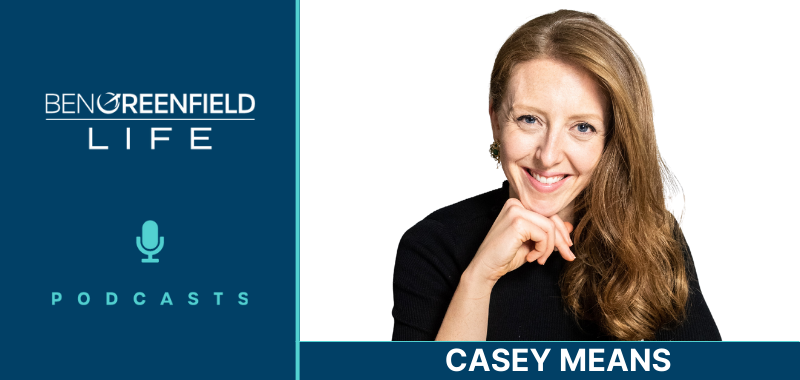
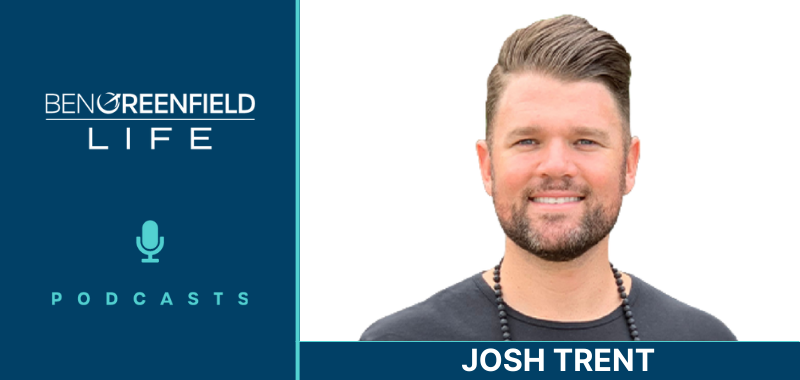
Hi there,
My Husband has been recently diagnosed with Atrial Fibrillation. He is currently taking blood thinner medication – xarelto to prepare him for electric shock treatment. I have been researching alternatives. Could he take Strophanthin while on xarelto until he seeks further help from someone who works with strophanthin.
I’m wondering about strophanthus to help avoid SVT episodes. They usually start off from having either a premature ventricular contraction so avoiding those would be lovely as well. It would seem that increasing parasympathetic tone would help and maybe that’s a way strophanthus could help? Any research or guesses about SVT?
In the above article you listed a phone number…..but it is listed as a non-working number: “If you are interested in learning more about the use of strophanthus for heart disease, please contact my office at (415) 334-1010 to schedule a free, 15-minute phone consultation on the use of strophanthus and how to order it. Mention Ben Greenfield or this article so I know how you discovered this information.”
I have two physicians who said that they would write a prescription for the strophanthus and would monitor me as I take it. I have weaned myself off all the pharmaceutical blood pressure/heart medications except a nitrate. My PCP knows Dr. Cowan and is very interested in the use of the strophanthus.
Please list a new working phone number information or contact me at my email address on how to order the product.
Thank you,
Linda Ogle
Hi Linda! Try 1-800-111-2233 or email: [email protected]
Thank you for your reply. I tried to call the number 1-800-111-2233 and received a message that the number could not be completed as dialed. Not sure what the problem is with the phone numbers.
Is there a THIRD number you might give me? I guess I will attempt to contact Dr. Cowan.
Thanks so much.
Linda
Hi,
I am under a doctor’s supervision for Strophanthus but you phone number above does not work.
Please provide a contact for ordering Strophanthus
Hi Irina! Try 1-800-111-2233 or email: [email protected] It can also be found as Strophanthus on Amazon, but I cannot vouch for the quality: https://amzn.to/2y1Kh9s
Why is it so difficult to find a pound of strophanthus seeds?
Need to find a Doctor who knows about Strophantus.
Where could you find something like this Where could you find something like this
I have a 24 yr old son who was diagnose with pericarditis..otc remedies don’t work, and the cardio dr has given him a script for a beta blocker.. which I told him not to take..We are trying hard to research alternatives..We do have a naturopathic dr. in town. Would it be advantageous to make an appt.
Any where I can do more research on why and what to do to help him with this matter?
I have a friend who is here visiting for sometime from Germany who showed me her bottle of strophanthus kombe… and told me it has healed her of her heart problem.. She is 72…
Did you get an answer or help for your son? I have a 34 yr old daughter with the same problem.
Ben, maybe a little off topic but giving Stroph a shot. Have a question about lactic acid/doms (delayed onset muscle soreness). I see that Stroph assists with the lactic acid in the heart but what I can’t find out online is how to reduce DOMS and would Stroph have any benefit on muscle soreness or does it only apply to the heart?
I work out too much and do not do enough to recover but is their anything I can do to recover? I constantly have muscle soreness and calf twitching. Would Stroph reducing lactic acid have any benefit on muscle soreness or is their an entire different course of treatment I should be looking at for muscle recovery?
Thanks man, you are doing God’s work!
Hi, thanks for the email, as strange as it is I have tried strophanthus over and over again for leg or other cramps and it doesn’t seem to help at all. The heart, yes, but it seems it doesn’t impact anywhere else. Pickle/sauerkraut juice is the best I know of for other cramps. Best, TC
Hi TC. Nothing strange at all. You probably have an electrolyte imbalance. Sounds like you may be taking the wrong type of magnesium for your heart. I’d suggest you switch to magnesium oratate. You and anyone with cramps would likely benefit from Epsom salts baths, which provide another source of magnesium.
Before taking anything, you might want to reduce your workout. Too much of anything is bad.
Obviously it would.
I wonder if this works for addiction
Addiction is a spiritual disease
Which of course, is centered in the heart
I don’t understand what he means by “spiritual” disease???
I am not my body.
Hello … I learned about your site via a presentation from Dr. Joe Mercola & interview with Dr. Thomas Cowan … Briefly … I am 73 year old male with advanced heart failure … cardiomyopathy … on the National Heart Transplant list as a 1b category through the Univ of Nebraska Medicine facility … no other chronic health problems … probably, in all honesty, an excellent health profile other than this ticker problem … currently on a dobutamine infusion drip … 25 mg Losartin, 20 mg furosemide, spironolactone 25 mg & warfarin 6mg … all daily … pacemaker installed about 60 days ago and a permanent rewiring of my heart to eliminate and isolate an a-fib area … open heart surgery in August, 2016 to repair (with an Edwards Ring) my mitral valve … anyway, I feel great … walk (as I have been doing for about 10 years – a former long distance amateur marathon runner – ) … here’s my question – is there a possibility that strophanthus might be a possible long-term fix for my problem … notwithstanding that a heart transplant might prove to be the best of any alternative … I recently read Dr. Joe Mercola’s article on this subject and watched his interview with Dr. Thomas Cowan … I suppose that I am dropping you a note to pose this matter – something that my medical instinct prompted me to pursue … I also sent Dr. Cowan a similar message via his website … Thank you for taking time to read this.
Regards,
Garrison Karr
Overland Park, Kansas
[email protected]
Mobile 913-220-3319
Ouabain is banned in the US and Germany. Typically used as poison on the end of hunting arrows.
To Nonegiven, I’d suggest that you get immediate medical help, because if your adrenal grands are working, they are pumping out Ouabain throughout your cardiovascular system. And go easy on the water or you could die from hyponatremia.
The precautions and adverse reactions from the Physicians’ Desk Reference for Ouabain/Strophanthus are as follows:
“No health hazards are known in conjunction with the proper administration of designated therapeutic dosages.”
Hi Ben
Thanks for the information.. I have high blood pressure and no known heart disease .
Would stophanthus help lower blood pressure?
I am a 60 year old Yoga teacher..very healthy otherwise.
THANK you
I am not a doctor and this is not to be taken, interpreted or construed as medical advice. Please talk with a licensed medical professional about this. These are just my own personal thoughts and not a prescription or a diagnosis or any form of health care whatsoever. In one of the case studies mentioned lower blood pressure was reported.
Excellent Article Ben. I learned a lot and I admire Dr. Cowan!
Can Strophanthus be taken as a preventive or to support the parasympathetic nervous system, if someone has chronic disease?
Have a wonderful Thanksgiving to both of you and your families!
Rosanna
Based on what Dr. Cowan has written here, I'd hazard a guess that the answer is yes.
Thank you for this information.